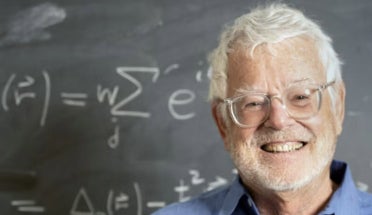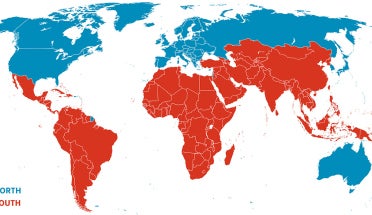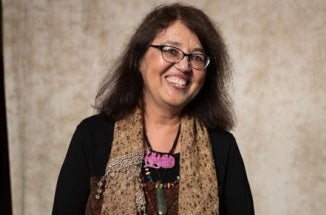
iSchool Professor Examines Information, Sovereignty of Indigenous Nations Inside U.S.
- Nov 17, 2022
- by Ellen Stader
Three elements underpin the work of Distinguished Service Professor Loriene Roy: heritage, information and community.
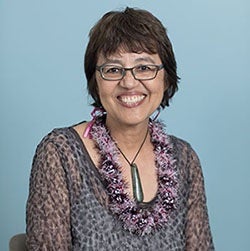
To converse with the School of Information professor is to hear her deftly intertwine the three concepts in stories about preserving Indigenous knowledge, expanding access to information and resources, fostering student opportunities and making connections between library science students and professionals from Indigenous nations around the world.
Every story gives the impression of Roy unlocking and opening a door, usually to a place containing knowledge, then ushering through as many people as possible. Community is clearly a bedrock value, as her conversation brims with mentions of the people and groups she works with for each endeavor. As she puts it, “My whole life is a group project.”
The overarching group project — Roy’s 35-year career in information science and education — centers around seeking ways for library and literacy services to both preserve and advance Indigenous knowledge and cultural heritage. Her professional activities are widely varied, splitting time between teaching, research, writing, speaking and service activities.
Sovereignty Inside, Outside and Across Borders
During speaking engagements in early 2022, Roy began fielding questions from high school students about issues of sovereignty. “They’d likely heard about sovereignty in terms of the war—that Ukraine was fighting for their sovereignty,” she said.
But long before current geopolitics revitalized public interest in the issue, it was already a personal one for Roy. Speaking at events over the years, she often found herself explaining the status of sovereign Indigenous nations and their citizens within the borders of the United States. She points the curious toward resources on the website of the National Museum of the American Indian for precise information on tribal sovereignty.
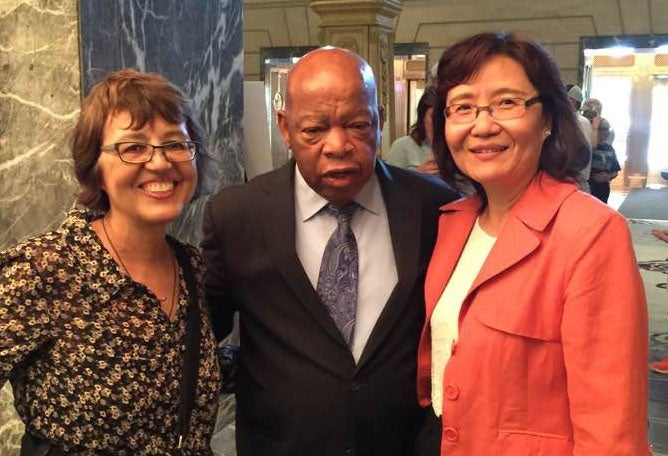
“Sovereignty is, essentially, being able to govern oneself,” said Roy. “The 574 federally recognized tribal nations within the borders of the United States are also sovereign nations. Many people who are members of those nations introduce themselves as citizens: dual citizens of the United States of America and whatever tribal nation we belong to.”
Roy acknowledged that identity is a large part of the overall question of citizenship and sovereignty, and the way individuals approach the issue often depends on local and personal circumstances. She explained with a big smile, “Native people don’t find it confusing, but it’s strange to others.”
Above All Other Roles, an Indigenous Person
In considering her numerous roles—multilevel educator, working librarian, prolific writer, respected speaker and groundbreaking cultural researcher—Roy said she defines herself above all as an Indigenous person, seeking to advocate however she can for Indigenous people across the world.
Long before she served as the first American Indian president of the American Library Association, Roy grew up Anishinabe, enrolled on the White Earth Reservation as a member of the Minnesota Chippewa Tribe — although, she clarified, “The tendency is to say ‘nation’ instead of ‘tribe.’ ”
After her family moved to a new home, where Roy found a book left behind about the iconic collie Lassie, books and information became increasingly important to her. “I was allowed to read as long as I was where everyone else was, and Mom could see what I was doing,” she said.
As children, Roy and her little sister would visit the public library in the basement of the community center, a block from their home, sometimes checking out the library’s atlas on Fridays and returning it on Mondays.
It quickly became clear that libraries were a world meant for Roy. When the sisters received their weekly allowance — two quarters — Roy would spend her share on books. Soon, she created a lending system, complete with cards. Her sister was the only borrower, but she soon lost her privileges after she turned down the corners of pages instead of using a bookmark.
All in the Name of Service
After arriving to teach at The University of Texas at Austin on the first day of 1987, Roy was encouraged by a student to engage with Indigenous people via the American Indian Library Association, which provides a space for Indigenous communities and library professionals to consider, create, share and archive cultural and professional knowledge. It’s also provided an intellectual community for Roy, who served as its 1997-1998 president.
In UT Austin’s School of Information, Roy's writing and research center around Indigenous cultural heritage development and literacy efforts. She is also affiliated with the Center for Women’s and Gender Studies and is currently working on a nonfiction book for high school-age readers featuring the lives of five different Native women who moved to the top of their fields.
Besides courses on public libraries, library instruction and information literacy, Roy teaches Indigenous librarianship during selected summers for the University of Hawai’i at Manoa. She expanded her scope to work with tribal colleges around the United States, Canada and Aotearoa/New Zealand, finding them a logical and fruitful point of connection with colleagues and students.
Having served as library consultant for two of the three indigenous nations in Texas, Roy realized that “there are barriers to library use. One is creating the family tradition of supporting libraries and reading. Tribal libraries can be exciting places that support cultural expression ... where Native language learning takes place, where records are housed and organized, where children and family members gather.”
A strong believer in service learning, Roy also uses teaching assignments to embed service opportunities into students’ studies. After forging a special connection with the Tribal College Librarians Institute in Boseman, Montana, Roy’s students were often invited to attend its annual event, organized by Mary Anne Hansen, professor and research services librarian at Montana State University.
Roy and her students have since created LibGuides (online research guides) for libraries at some of the more than 30 tribal colleges — often leading to encounters that catalyze deep and productive connections between students and tribal library professionals.
Advocacy Connecting Communities
For Roy, building a community-family for students is as important as connecting them to professional opportunities. Since most students only stay in the information science program for about 2 years, she explained, creating community is important for the future of their professional lives, as well as for that of the field itself.
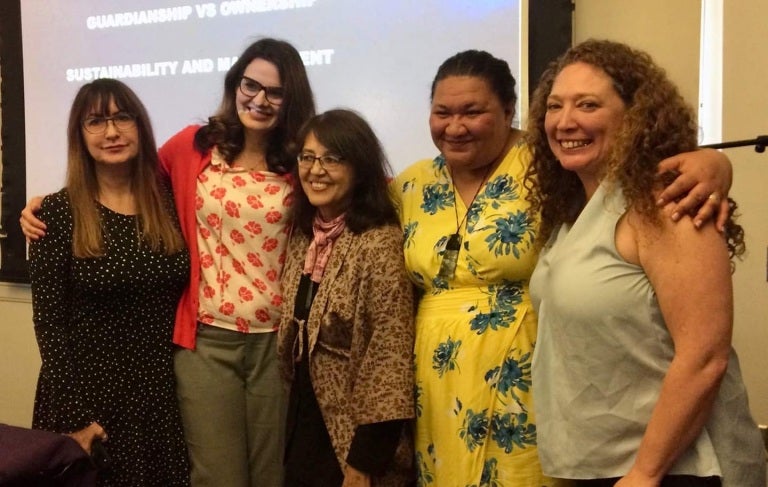
The study and practice of information science offers professional opportunities that even people working in the field don’t always know about, Roy said, and she has found herself to be a natural conduit for such information. She listens for possibilities that might match a student’s needs, then prompts them to explore and take advantage of those opportunities.
Much of Roy’s service work now happens on boards and advisory councils. She enjoys helping to make decisions, such as for scholarship awards, that are “really welcome because they come with recognition — and sometimes cash!”
Among other offices, she serves on the editorial team of the European Conference on Information Literacy, contributing to the production of the annual conference program and published proceedings. She also serves on advisory board for the Library of Congress Literacy Awards.
Advocacy and mentorship are primary facets of Roy’s work, always seeking more avenues for connection as she advocates for Indigenous people’s access to information around the world. As she said, “Anybody’s background counts in information studies.”

